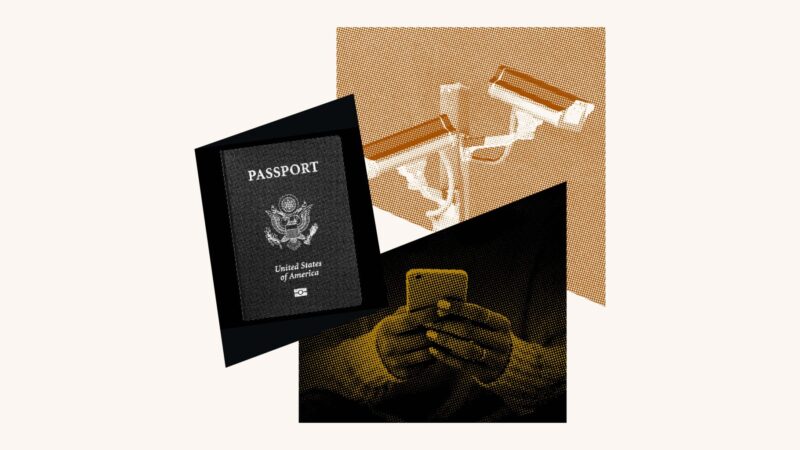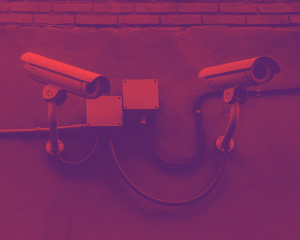Privacy and Surveillance
The ACLU works to expand the right to privacy, increase the control individuals have over their personal information, and ensure civil liberties are not compromised by technological innovation.

Founded in 2013, the ACLU of Massachusetts Technology for Liberty Program works to ensure that our laws keep pace with technology, and to protect our core civil liberties from the threats posed by novel forms of government and corporate surveillance.
While governments and corporations use novel technological methods to collect information and inform decisions about all of us, the harm is not borne equally by all members of our society. Like so many other issues, technology and civil rights violations tend to most negatively impact people of color, low-income people, religious minorities, and other marginalized populations. Our work, therefore, often focuses on issues at the intersection of technology and racial and gender justice.
In June 2023, the ACLU of Massachusetts and our partners launched a campaign to ban the sale and trade of cellphone location data, entitled Your Location: It’s None of Their Business. Every day, companies collect and sell sensitive location data from cellphones, revealing where people live, work, seek health care, and more. Since the overturning of Roe v. Wade, this practice puts patients seeking abortion care in Massachusetts at risk of prosecution and harassment, and threatens the privacy and safety of all people. Our campaign has one goal: to pass statewide legislation banning the sale and trade of cellphone location information.
Launched in 2019, our Press Pause on Face Surveillance campaign continues to build awareness about the civil liberties harms posed by this technology, and the need to bring its use by government under democratic control. To date, the campaign has won eight municipal bans on face surveillance technology in Massachusetts — including in the Commonwealth’s four largest cities — as well as state legislation. In 2022, a bipartisan legislative commission released a report recommending that lawmakers adopt further reforms on face surveillance. We are currently advocating for legislation to codify the commission’s recommendations.
We are helping cities and towns across the country to pass local ordinances that would prevent police from acquiring new surveillance technology in secret. Under these ordinances, all existing and future surveillance technology acquisitions are subject to public approval by elected officials. Several municipalities — most notably Boston in 2021 — have adopted these ordinances.
We also advocate for consumer privacy legislation, fighting to enact strong protections against the tracking, selling, and weaponization of our personal data by tech companies. We’re working to pass a bill, modelled on Illinois’ Biometric Information Privacy Act (BIPA), that would offer Bay Staters the same level of protection against reckless and secretive exploitation of their personal data. We are also advocating for omnibus consumer privacy legislation, the Massachusetts Data Privacy Protection Act (MIPA), which if enacted would give Massachusetts residents the strongest digital privacy and civil rights protections in the world.
Through the Data for Justice Project, we are educating and empowering the public to advocate for government transparency and examining the racial and economic inequities that are found in every aspect of society. This project has conducted groundbreaking analyses of the Boston Police Department’s budget, state funding of prison construction, the disparate impact of COVID-19 on communities of color, the unequal distribution of broadband, the prevalence of government-owned drones in the skies above Massachusetts, and much more.
In September 2022, we launched a podcast, Freedom Unfinished, a four-part podcast that explores emerging technologies and the impact of artificial intelligence, big data, and biometric surveillance on civil liberties and democracy. Hosted by Executive Director Carol Rose and Technology for Liberty Director Kade Crockford, the show features interviews with experts, scholars, and advocates. Guests include U.S. Senator Ed Markey, Pulitzer Prize-winning investigative journalist Julia Angwin, author and criminal justice expert Sandra Susan Smith, former dean of Harvard Law School and constitutional law expert Martha Minow, and many more.
Read more about the Technology for Liberty Program at our Privacy SOS blog.
The Latest

ACLU of Massachusetts Applauds House Data Privacy Bill

ACLU of Massachusetts Warns Cities and Towns about Dangers of License Plate Readers

Labor, Reproductive Rights, Civil Liberties Advocates Applaud State Senate’s Passage of Data Privacy Legislation
Cases, Campaigns & Legislation
ACLU of Massachusetts v. Executive Office of Public Safety and Security et al.
Merchant v. Mayorkas
Take Action
Today, years of hard-fought civil liberty protections are under threat.
To influence lawmakers, we need everyone to get involved. Here are 2 actions you can take today.
Stay Informed
Sign up to be the first to hear about how to take action.
By completing this form, I agree to receive occasional emails per the terms of the ACLU’s privacy statement.
By completing this form, I agree to receive occasional emails per the terms of the ACLU’s privacy statement.



